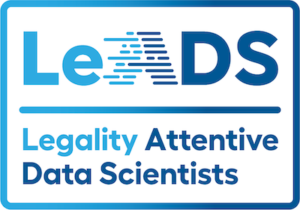LeADS Organises Innovation Challenge and Final Conference on Legally compliant data-driven society

Pisa, October 2024—The LeADS Project (Legality Attentive Data Scientists) hosted its final three-day meeting at the LeADS beneficiary Sant’Anna School of Advanced Studies. The event featured a diverse range of activities, from an innovation challenge on the AI Act to intensive panel discussions.
The event opened with an innovation challenge on the AI Act. External participants of the challenge needed to create a solution that helps developers or deployers of AI systems navigate the AI Act’s risk classification system and understand which requirements apply to them.
The third day focused on the final LeADS Conference, named “Legally compliant data-driven society,” which explored how a multidisciplinary approach to governance can reap the benefits of new technologies while guaranteeing fundamental rights and freedoms. The conference had outstanding speakers across three panels, each addressing critical facets of a data-driven society.
The first panel included an introduction by Giovanni Comandé from Sant’Anna School of Advanced Studies, followed by a keynote from Giovanni Pitruzzella, Judge at the Italian Constitutional Court, who discussed regulatory challenges and opportunities in data markets. Giuseppe Turchetti of Sant’Anna School then explored innovation ecosystems fueled by data, while Antonio Buttà from the Italian Competition Authority reflected on the evolving competition landscape shaped by data flows. The panel concluded with a lively discussion on fostering innovation while preserving market fairness.
The second panel focused on the topic of “Research and Secondary Use of Data.” Comandé introduced the session, followed by Paul de Hert from Vrije Universiteit Brussel, who addressed the ethical and legal frameworks supporting secondary data use in research. Regina Becker of Luxembourg National Data Service presented a European perspective on data stewardship, and Piotr Drobek from Poland’s Personal Data Protection Office (UODO) emphasized the challenges of privacy in secondary data applications.
Finally, the third panel explored the topic of “Data Society and Technological Sovereignty,” and featured an introduction by Michelle Sibilla from Université Toulouse III. Jorge Maestre Vidal from Indra Digital Labs explored the relationship between data sovereignty and security, while Giovanni Comandé provided insights on the legal implications of emerging data technologies. Nicola Lattanzi from IMT School for Advanced Studies Lucca concluded the panel with a reflection on how data policies can foster technological independence.
During the engaging three-day event, ESRS had the opportunity to participate in a productive and enlightening discussion. The conversation emphasized the crucial need to harmonize technological progress with the fundamental principles of sovereignty and security.
Contact details:
Veronica Virdis, LeADS Project Manager
pm@legalityattentivedatascientists.eu




